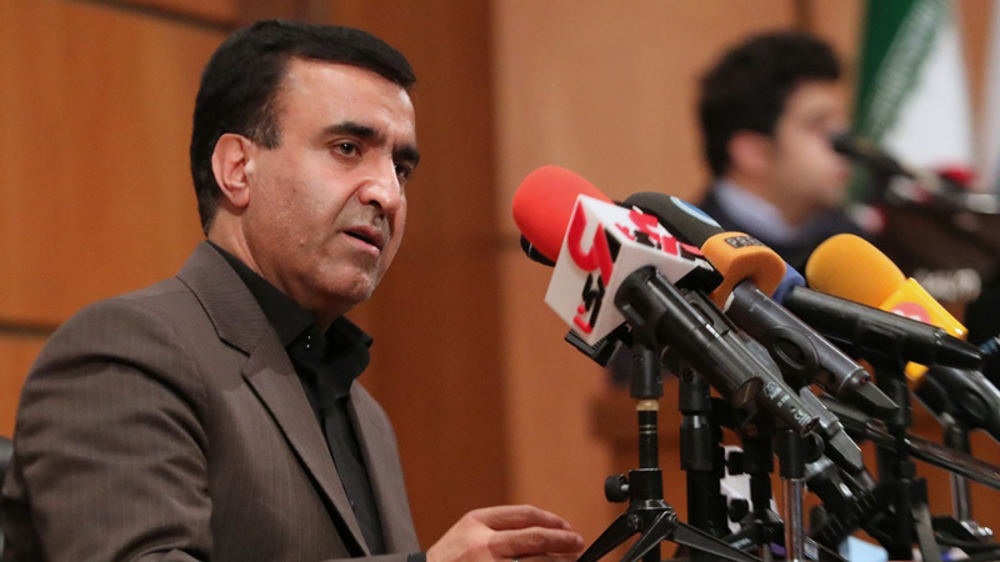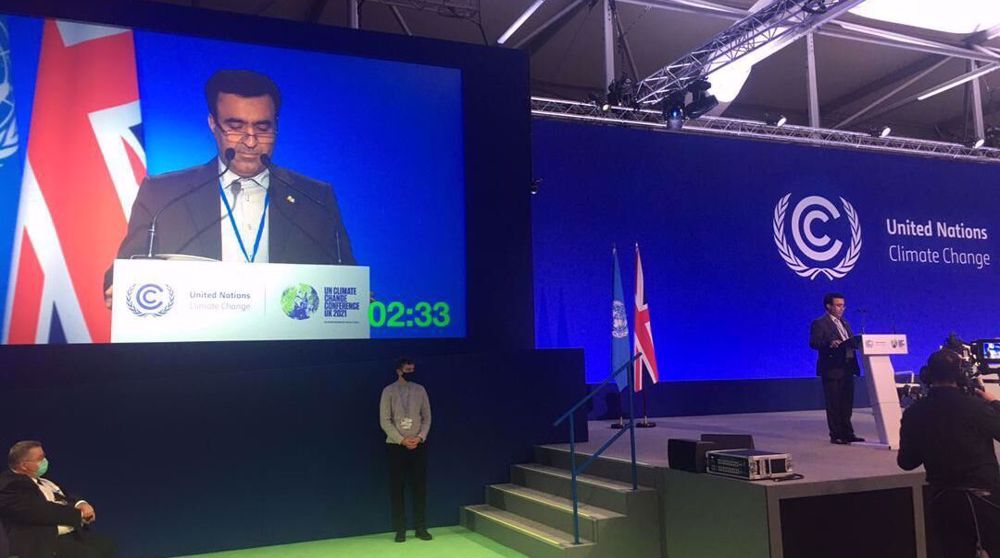Iran climate chief calls COP26 a failure because of colonialist approaches
Iranian authorities say the United Nations’ recent climate conference in the Scottish city of Glasgow (COP26) failed to reach its objectives because of the colonialist approaches of rich countries toward developing nations.
Head of the Iranian government’s Department of Environment Ali Salajegheh said on Tuesday that the Glasgow summit turned out to be a failure because developed nations continued to dictate their wishes on countries that still rely on fossil fuels for a bulk of their energy needs.
Salajegheh made the remarks after returning from COP26, an occasion he used to highlight the impacts of US sanctions on Iran’s ability to meet climate goals set under a 2015 global agreement.
In his Tuesday briefing with reporters in Tehran, the Iranian climate chief accused the developed nations of trying to force others into accepting the huge costs of the global transition to the renewables.
“The question is who created problems for the ozone layer and the greenhouse gases? They (who created them) have now come to the conclusion that the countries with energy resources should pay for improving the climate, this is a colonialist policy,” he said.
Salajegheh said Iran will seek to expand its cooperation with countries that have opposed the unilateral approaches adopted in the West on the issue of environment.
He hailed positions adopted by Qatar and Saudi Arabia in COP26, saying Iran should seek to boost its regional diplomacy on environment.
The Iranian delegation to the Glasgow summit announced on Saturday that it was not satisfied with the language used in the meeting’s draft agreement on phasing out fossil fuel subsidies and instead declared its support for India’s position on the issue.
Basij volunteer forces hold massive drills in southwestern Iran
Israeli war criminals 'not welcome', US city says after ICC ruling
US vetoing of Gaza ceasefire resolution ‘disgraceful’: Iran’s UN envoy
VIDEO | IAEA adopts anti-Iran resolution tabled by E3
VIDEO | Iran's president urges Pope to help end Israel's onslaught in Gaza
Iran's senior legal official: ICC arrest warrant for Netanyahu ‘great victory'
Nov. 21: ‘Axis of Resistance’ operations against Israeli occupation
VIDEO | Israeli forces storm West Bank’s Jenin again, target civilians











 This makes it easy to access the Press TV website
This makes it easy to access the Press TV website